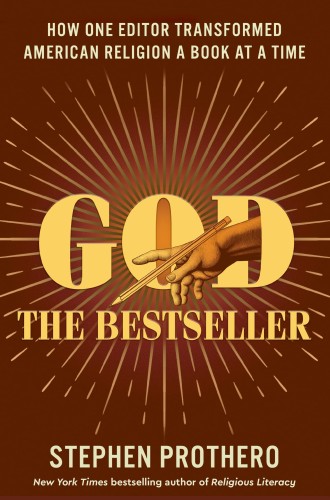The book editor who inadvertently helped empty America’s pews
Stephen Prothero’s biography of Eugene Exman reveals how the bestsellers he acquired taught people to be spiritual but not religious.
When an elderly woman asked religion scholar Stephen Prothero to visit her late father’s library of religion books, he wanted to ignore the invitation. But when he finally went, Prothero found the books, letters, and personal writings of a spectacularly influential but little-known editor who shaped a century of American religious thought and practice. In God the Bestseller, Prothero suggests that the books this editor acquired proffer a “genealogy of modern American religion—stepping-stones across the stream of American consciousness from Protestantism to pluralism, from dogma to experience, and from institutional religion to personal spirituality.”
The woman’s father, Eugene Exman, worked from 1928 to 1965 as an editor at Harper & Brothers (which became Harper & Row and later HarperCollins, parent company of Prothero’s own publisher). In steering the religion books department at Harper, Exman launched hundreds of bestsellers—most of us in publishing would be thrilled to work on just one—and pulled off historic moves like convincing Martin Luther King Jr. to write his first book. Exman, whom Prothero calls the “dean of religious publishing” in the United States, collected a group of friends—activists, preachers, rabbis, industry titans, and others—and published many of their works. The complicated legacy of Exman’s oeuvre, Prothero writes, “taught millions to hate the word religion and love the word spirituality, and, in so doing, it helped to empty the pews in twenty-first-century America.”
God the Bestseller is a biography in triplicate. Prothero narrates Exman’s journey: from his early years in Ohio, where he experienced a flash of transcendence on the way to a prayer meeting, to divinity school, and then to the world of publishing, where for five decades he honed an intuition regarding which writers could both shape readers’ sense of the Divine and produce books that would sell. Prothero constructs Exman’s vocation as a lifelong attempt to recapture his teenage mystical experience of God by acquiring the work of mystics, saints, and people he thought might become either. “He published books that would help his readers (and himself) in their personal quests for the divine,” Prothero writes, “always with one eye on spiritual practices and another on religion in action.”





